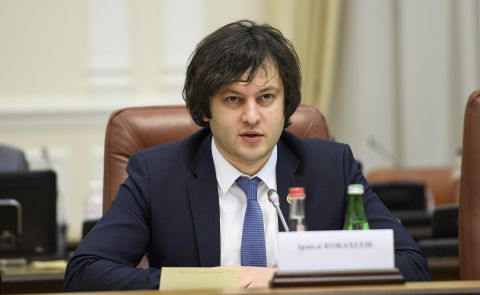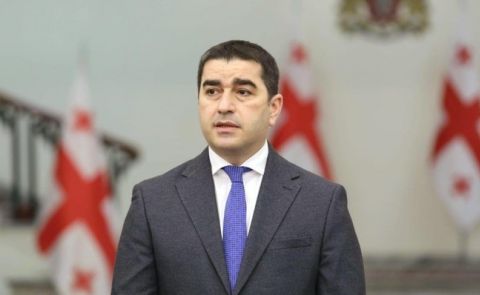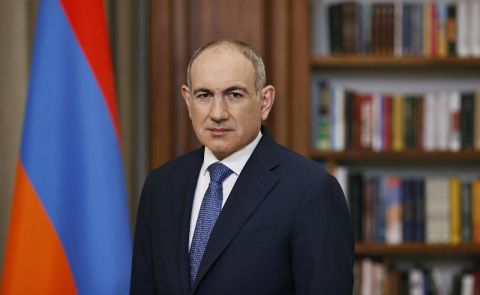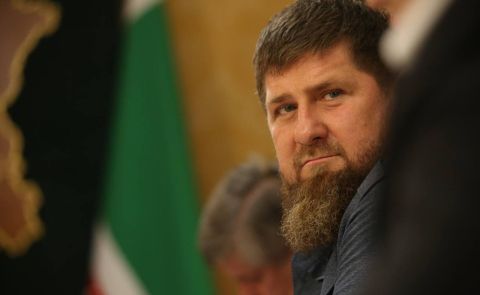
New Caucasus Hearings in US Congress

On December 14, in the Subcommittee on Europe, Energy, Environment, and Cyber of the Foreign Affairs Committee of the US House of Representatives, a hearing was held on the policy of the United States regarding the Caucasus region under the chairmanship of William Richard Keating.
Karen Donfried, the Assistant Secretary of State for European and Eurasian Affairs of the United States of America, reported at the hearing. She answered the questions of the Democratic and Republican members of the House of Representatives.
In his opening speech, Congressman William Keating emphasized the importance of the role of the United States of America in the peace negotiations between Armenia and Azerbaijan. He applauded both countries' willingness and initiative to work toward long-term peace. "I have made it clear, after in-depth discussions with the ambassadors of each country, that I hope for a speedy solution that will benefit both countries and the region as a whole," Keating said. Keating added that a sustainable peace agreement between Armenia and Azerbaijan, along with sustainable democratic reforms, is vital for the region. He stated that the democratic decline in Georgia continues and expressed concern about the Georgian government's persecution of opposition leaders and the activities of activists and minorities in the country that threaten human rights. Keating also called on the government of Azerbaijan to protect minority groups, including LGBTQ individuals, and to carry out necessary reforms to establish democratic processes in the country.
In her turn, Karen Donfried said that Armenia and Azerbaijan have historical opportunities to ensure lasting peace to the conflict that has been going on for more than 30 years. She said that after the fighting in September, both countries renewed their focus on the peace process, including the historic direct negotiations on the text of the peace agreement. Donfried emphasized that the United States plays an important role in this process. "We continue to put pressure on Azerbaijan and Armenia to maintain the momentum of negotiations, and we do so bilaterally, trilaterally, and in close coordination with the European Union and other partners," Donfried said.
Touching on bilateral relations between Azerbaijan and the United States, Donfried said that the United States is committed to developing bilateral priorities, including security, economic growth, democracy, and human rights. "Security cooperation with Azerbaijan supports our national security priorities, including the goals of combating terrorism, preventing narcotics and illegal materials, and increasing the security of important energy infrastructure in the Caspian Sea," she said. Karen Donfried added that the main problem in the peace process between Azerbaijan and Armenia is that since these two countries have conflict for more than 30 years, there is distrust between them. According to him, it is for this reason that meetings between the leaders or officials of the two countries are critical. "Therefore, the administration is trying to organize discussions between the two sides so that they understand each other and understand their concerns," she said.
In response to Chairman Keating's question about Russia's influence and influence in the region, Karen Donfried said that Russia has long-standing interests in the South Caucasus region and often meets with officials from Armenia and Azerbaijan. She said that Russia's military intervention in Ukraine raises questions about Russia's long-term intentions in the region and that no country in the South Caucasus supports Russia's war in Ukraine, which changes the dynamics in the region. Donfried added that Russia is not the main mediator between Azerbaijan and Armenia and that various actors are involved in this process. She stressed that the United States had been more actively involved in this process in the last few years. "Whether it is Secretary Blinken, our colleagues at the Department of Defense, our colleagues at the National Security Council, our senior adviser on the Caucasus negotiations, or my own participation, we see this opportunity, and both countries have asked us to participate," she said.
Karen Donfried also said that Turkey is a critical player in this process, and the reason for this may be the normalization of Turkey-Armenia relations. "[It] will be good for the whole region and promote the peace process between Armenia and Azerbaijan," she underlined.
Speaking later in the hearing, Jim Costa, the Democratic representative representing the state of California, said that Azerbaijan blocked the road between Armenia and Karabakh and that this road is a critical humanitarian exit. He said that this shows that the intention of the Azerbaijani side is not good and asked what steps the United States has taken for the Armenians living in Nagorno-Karabakh.
In response, Karen Donfried highlighted the State Department Spokesperson's statement the day before, saying that the closure of the Lachin Corridor has severe humanitarian consequences and undermines the peace process. She added that the United States called on the Azerbaijani government to restore free movement along the corridor. In addition, she stated that she would discuss the issue with the Azerbaijani official who visited Washington on December 14 and would call for the restoration of free movement.
Referring to the decision of the Biden administration to extend the exception under Amendment 907 to the Freedom Support Act, Karen Donfried noted that she is sure that the US security assistance to Azerbaijan is not used against Armenia and that this is not an obstacle to negotiations on a long-term political solution to the Nagorno-Karabakh region. "Our security assistance to Azerbaijan strengthens the interoperability of peacekeeping forces, helps ensure security along Azerbaijan's 765-kilometer border with Iran, and ensures the security of energy sources important to our allies in Europe," she stressed.
See Also


Kobakhidze Meets US Senator Daines to Discuss Bilateral Relations

Georgian Speaker Condemns Embassy Travel Warnings as Economic Attack

Political Crisis Deepens Between Armenian Government and Apostolic Church After Pashinyan’s Remarks

Ramzan Kadyrov Awards Title to Ingush Businessman

